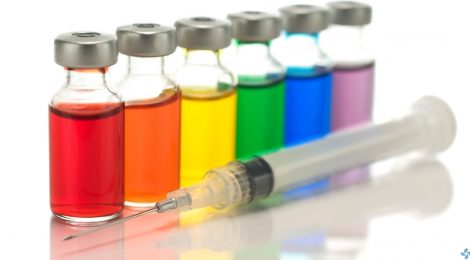
China’s health system scandals threatens public trust
In February this year a nationwide public health scandal which involved dozens of provinces in China hit the headlines around the globe. The scandal is related to the sale of improperly handled vaccines, after which 357 officials have been fired or demoted.
This is just the latest crisis to ignite public concerns about food and medicine safety and propel the already widespread distrust of China’s medical system. The situation became even worst when rumours spread that the authorities have kept the news secret for about one year, without informing the populations about the potential risks. Yet, it is the first time such a scandal happens under President Xi Jinping, who promised to “make protecting the people’s right to health a priority” and restore public trust right after taking office.
Now a cross-departmental team established by the State Council is investigating the case. The vaccines in question had been stored without appropriate temperature control, state news agency Xinhua reported. More than a dozen suspect products have been identified, including vaccines for rabies, polio, meningitis, hepatitis B and mumps. The business was worth an estimated €77 million.
The erosion of public trust deriving from numerous scandals in the national health care system could seriously damage China’s immunization program. In 2007 the then-director of the State Food and Drug Administration was charged for approving drugs in exchange for money. Again, the following year nearly 300 thousand children were sickened by contaminated infant milk formula.
 As for the present case, the problem mainly lies into the national system of vaccination, which was changed in 2005 by the State Council and divided the vaccines into two different categories. Illnesses such as hepatitis B and tuberculosis fall in the category one vaccines, which are mandatory, strictly controlled by provincial-level disease control authorities, and completely covered by the government. Very different is the system for category two vaccines, which are non-mandatory and therefore not centrally controlled. The purchase decisions in this case are usually made by provincial-level disease control centres which seem to use their monopoly over the vaccine market to seek profits, and this situation opens the door to corrupt practises. To boost sales of the non-mandatory vaccine, it seems that some provincial centres even encouraged hospitals and doctors to promote the vaccines to their patients by offering them bonuses.
As for the present case, the problem mainly lies into the national system of vaccination, which was changed in 2005 by the State Council and divided the vaccines into two different categories. Illnesses such as hepatitis B and tuberculosis fall in the category one vaccines, which are mandatory, strictly controlled by provincial-level disease control authorities, and completely covered by the government. Very different is the system for category two vaccines, which are non-mandatory and therefore not centrally controlled. The purchase decisions in this case are usually made by provincial-level disease control centres which seem to use their monopoly over the vaccine market to seek profits, and this situation opens the door to corrupt practises. To boost sales of the non-mandatory vaccine, it seems that some provincial centres even encouraged hospitals and doctors to promote the vaccines to their patients by offering them bonuses.
For this reason, besides punishing the officials, Beijing is introducing new measures to tighten supervision over the storage and distribution of vaccines. According to the media, drug wholesalers will be forbidden from selling vaccines, and vaccines will be traced from production to usage, with special rules enacted for refrigeration and transport.
Xinhua reported that 29 pharmaceutical companies have been implicated in sales, and 16 institutions in purchases in the scandal. The government said all the vaccines were produced under proper conditions and did not contain impurities that could cause diseases. However, vaccines past their use-by dates or improperly refrigerated should have been destroyed.
China’s reputation for weak oversight of the domestic food and drug market has prompted Chinese parents to buy large quantities of infant formula overseas, especially in Hong Kong. The series of scandals China has been troubled with in the recent years also raises the question about how prompt would be the national response in the case of the spread of a new highly-contagious life-threatening disease, just like SARS or swine flu.




